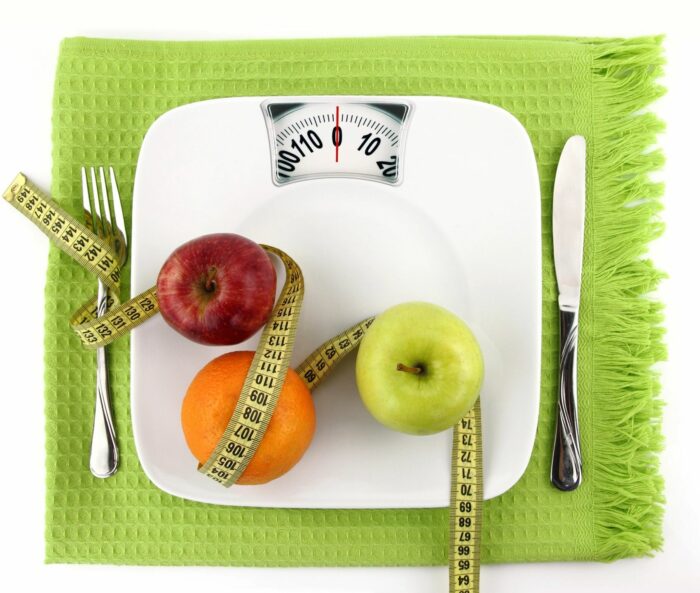How Your Diet Impacts Your Chances of Contracting the Flu
As winter rolls around, so does flu season. And while a flu shot is still the best way to protect yourself and your loved ones, especially those who can’t get the shot themselves, boosting your immune system is always a good idea.
Thankfully, there are easy ways you can work immune system-boosting foods into your daily diet.
Not only are the foods on this list delicious, but they’re also easy to prepare in a variety of ways. Most of them might already be in your daily diet. If they are, then you are ahead of the curve!
But if you want to make sure your diet is as flu-proof as you can make it, read on not only for the best food choices, but some great ways to prepare them, too.
The best way to fight off the flu is to have a healthy body. The healthier your body is, the healthier your immune system tends to be.
This means that a steady diet of junk food—whether it’s sugary, high in bad fats, or just lacking in nutrients—is going to increase your risk of contracting the flu.
Of course, this doesn’t work if you have any number of conditions that weaken your immune system. In these cases, the foods below will help bolster your immune system a little bit.
However, as with all medical concerns, you should see a doctor to ensure you have as much flu protection as possible.
Focus on Lean Protein
Winter and fall foods tend to feature a lot of red meat, and there is nothing wrong with eating some red meat on occasion. If you want to boost your immune system, however, you need to reach for lean meats.
Many of the compounds used by your immune system are supported by protein. Red meat will give you that protein, sure. But it will also give you a large dose of unhealthy fats.
Lean meats, by contrast, give high-quality protein without the high amount of fat. You can add in healthy fats like avocado or olive oil when you’re cooking, but the meat itself is going to give you more protein than anything else. And this, in turn will help boost your immune system when the flu comes knocking.
For an added health burst, you can try this recipe for salmon with winter vegetables. The salmon will give you protein and the healthy omega-3 fats that it’s so well-known for. Salmon is also a great source of vitamin D, which is the next thing you need to focus on for a flu-fighting diet.
Stock Up on Vitamin D-Rich Foods
You’ve probably heard that vitamin C helps fight the common cold. It turns out that vitamin D is actually a better option!
Vitamin D helps support your immune system much like protein does. While supplements are a solid option, getting enough vitamin D through your diet has additional benefits, like trace nutrients and increasing your fiber intake.
These bonuses might not help you fight the flu directly, but they will help your body reach an overall healthier state. This, in turn, better equips your immune system in general.
For the most part, your best sources of vitamin D are fatty fish and egg whites. A delicious salmon scramble is the perfect way to get all the lean protein and healthy fats mentioned above, as well as a ton of vitamin D.
If you’re not a fan of eggs—or animal products in general—there are still plenty of delicious options for your vitamin D needs. Orange juice is a great go-to that can be consumed straight or mixed into breakfast shakes.
If you want to get a little more complex with it, mushrooms and tofu both have high levels of vitamin D. You can whip up this tofu and mushroom stir-fry for a warm, savory option that’s loaded with flu-fighting nutrients.
Add Some Probiotics and Prebiotics
Rounding out this list is the ever-popular suggestion to get more probiotics and prebiotics. Though the names are very similar, prebiotics and probiotics are fairly different.
Probiotics are live bacterial cultures that help your gut function better. Prebiotics, on the other hand, are a form of fiber that help the probiotics take root.
When your gut is better equipped to do its job, thanks to probiotics (and fed by prebiotics), it is more effective at drawing nutrients from the food you eat. This means you’re getting as much out of your lean protein and vitamin D-rich foods as possible.
Probiotics also help support your immune system, so long as you get the right kinds. Because probiotics are a form of bacteria, they come in many strains. When you get the right strain, this particular kind of bacteria can help your body fight off infections more effectively.
While you can definitely get high-quality probiotic and prebiotic supplements, you can also consume a variety of healthy bacteria and the supporting fiber by eating certain foods.
Fermented foods are the best way to get probiotics into your diet. Foods like tempeh—fermented wheat gluten—are high in probiotics and friendly to nearly any diet structure, so long as you can eat gluten.
Tempeh is also a highly versatile product that pairs well with so many foods it’s dizzying! Take this seared tempeh salad, for example. Mushrooms bring the vitamin D, tempeh bring probiotics and protein, and dark, leafy greens let you pack in even more nutrition.
You can also reach for fermented foods like kimchi or sauerkraut if tempeh isn’t an option for you. Just about any fermented food is going to offer a range of bacteria so that your gut gets what it needs.
Dairy products can offer much the same thing, so long as you opt for something with live and active cultures, like Greek yogurt and kefir. Just make sure you reach for options without added sugar or flavorings. These options might not be as flavorful, but they’re less likely to pack in hidden sugars.
Prebiotics, compared to probiotics, are largely found in certain vegetables, fruits, and grains. Some prebiotic foods include onions, oats, flaxseed, apples, bananas, and barley.
The Takeaway
Unfortunately, there is no sure-fire way to protect against the flu. All you can do is try your best until flu season is over.
Part of trying your best includes adding these delicious, flu-fighting foods to your daily diet. Of course, keeping them in rotation year-round can help you stay healthy throughout the year.
Then, by the time flu season comes back around, you’ll be even stronger and ready to tackle the new season head-on!










I never thought of diet impacting your ability to get the flu, but it makes sense. I especially like the Vitamin D angle. Thanks for sharing!